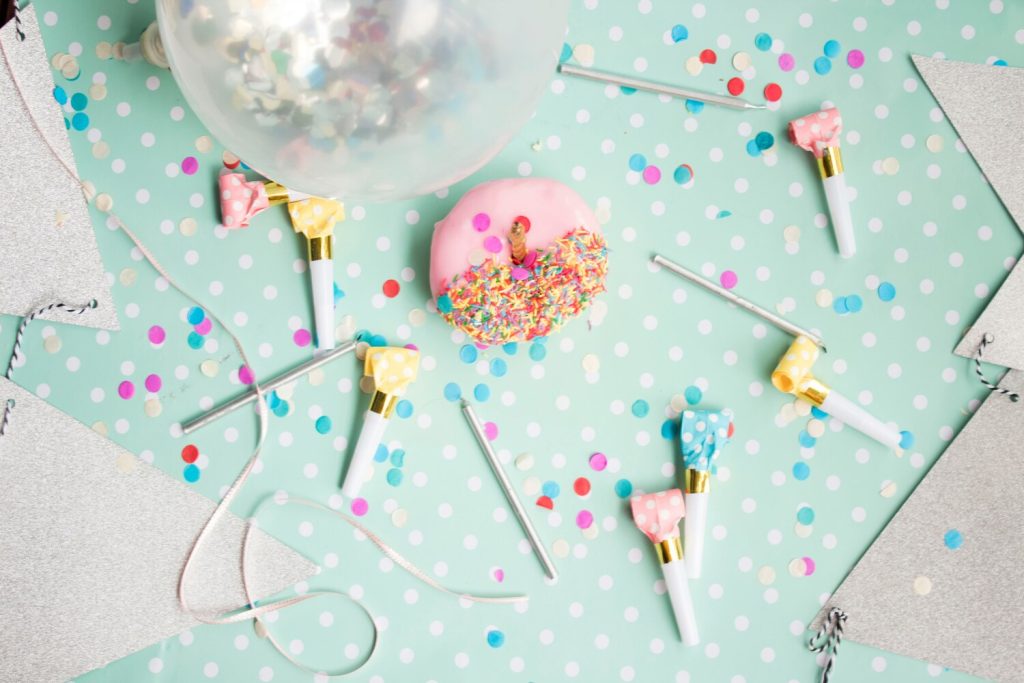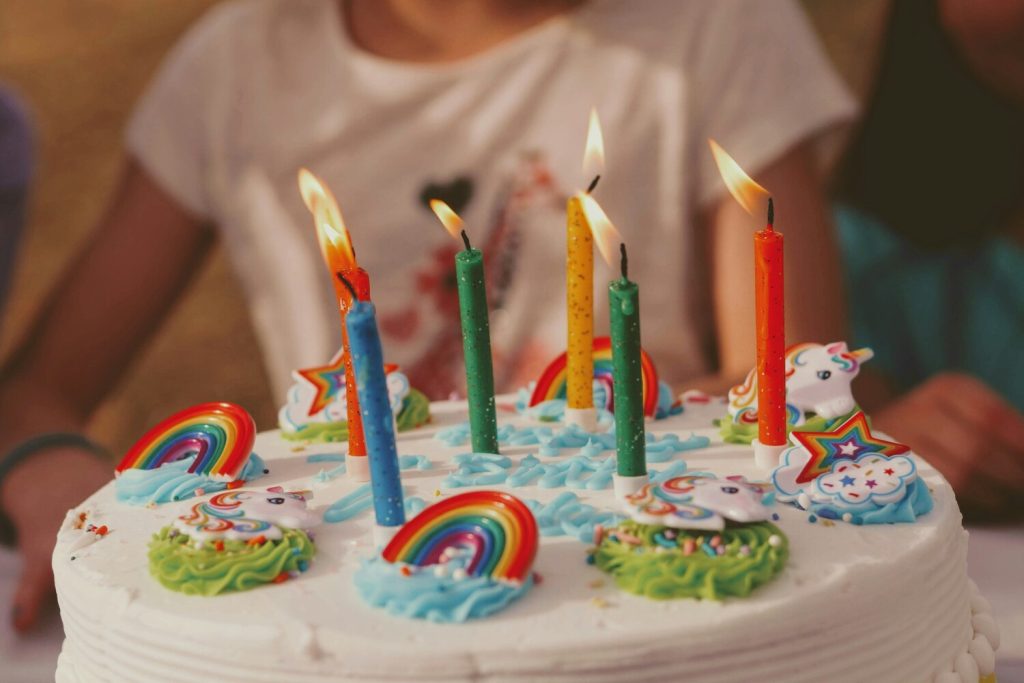
Gone are the days of backyard cupcakes, a dollar store banner, and pin-the-tail-on-the-donkey. Today’s birthday parties come with custom balloon arches, TikTok-worthy themes, personalized party favors, and professional photographers. And if you’re not spending $500–$1,000, you might feel like you’re falling behind.
Parents across the country are quietly wondering the same thing: How did we get here, and how do we get out without making our kid feel left out?
Welcome to the exhausting and expensive new normal of modern birthday parties.
Why Parties Feel So Much Bigger (and Pricier) Than They Used To
The shift isn’t just inflation (though that doesn’t help). It’s cultural. Social media has completely transformed expectations. What once passed as a fun gathering now feels like an event with a guest list, mood board, and post-worthy photos required.
Add in party venues, entertainers, custom cakes, and take-home gifts that look more like wedding favors, and it’s no surprise that families are spending hundreds (or even thousands) on what used to be a simple celebration.
There’s an unspoken pressure not to “underdo” it. After all, your child is going to compare their party with the one they just attended last weekend. And deep down, you might worry that a lower-key party will leave them disappointed or left out.
The Hidden Toll of “Keeping Up” Parties
For many parents, especially those with limited disposable income, this pressure creates a deep sense of conflict. You want to give your child a great memory, but you also don’t want to drain your savings or take on debt for a party that lasts three hours.
It’s not just about money, either. It’s about time, energy, and emotional bandwidth. Planning a picture-perfect party becomes a full-blown project, with weeks of prep and a day-of schedule that rivals a corporate event. Parents feel exhausted by the logistics and guilty for feeling exhausted.
And yet, skipping the extravagance altogether can feel like social sabotage. You might wonder: Will the other parents judge? Will my child be the only one without a party that’s “cool enough” to talk about at school?
When Kids Become Accidental Consumers
The kids themselves aren’t immune to the pressure, either. Many children are now exposed to curated party culture before they even understand what birthdays are. They absorb messages that a “real” birthday means a big party, a theme, a giant cake, and mountains of gifts.
That expectation sticks. Over time, birthdays become less about feeling celebrated and more about comparing the size, scale, and sparkle of their own party to their friends.
When kids are disappointed by anything less than Pinterest-level perfection, the problem becomes more than financial—it becomes emotional.

Parents Are Feeling Trapped in a Cycle They Don’t Want
The irony? Many parents admit they don’t even want the big blowouts. In conversation after conversation, what they really crave is a return to simplicity: a day filled with connection, laughter, and maybe some cake. Not a party planner, invoice, and clean-up crew.
But stepping outside the norm, especially when your child is old enough to notice, feels risky. And so the cycle continues: You match the party standard not because you want to but because you feel you have to.
So, What’s the Way Out?
If you’re feeling stretched thin by birthday expectations, you’re not alone, and you’re not powerless. Here are a few ways some parents are gently reclaiming the experience:
Normalize Simplicity
Talk openly with your child about what birthdays mean, not just what they look like. You’d be surprised how many kids care more about spending time with friends than about expensive decor or elaborate gifts.
Collaborate With Other Parents
Many families are in the same boat, but no one wants to be the first to scale things down. Talk to other parents, especially if you’re close, to start setting new, more reasonable norms together.
Create Meaningful Traditions
Instead of building the day around performance, focus on rituals your child can look forward to every year, like choosing their favorite dinner, making a scrapbook page, or waking up to a balloon avalanche in their room.
Say No (And Mean It)
If a venue or add-on doesn’t align with your values or your budget, it’s okay to skip it. Your child won’t remember the foam machine ten years from now, but they will remember if you were stressed, short-tempered, and stretched thin on their special day.
You Don’t Need the Perfect Party, Just a Real One
Modern birthday culture has drifted far from its original purpose. Somewhere along the line, it became less about celebrating the person and more about performing for the guests. But your child doesn’t need a show. They need to feel seen, known, and loved.
And that doesn’t cost a thousand dollars.
So we’re curious—what’s one simple birthday tradition your family has created that means more than any store-bought decoration?
Read More:
7 Birthday Gifts Your Child Should Never Bring to a Party
How to Plan an Epic Party: 10 Cheap Birthday Party Ideas You’ll Love
Riley is an Arizona native with over nine years of writing experience. From personal finance to travel to digital marketing to pop culture, she’s written about everything under the sun. When she’s not writing, she’s spending her time outside, reading, or cuddling with her two corgis.
Leave a Reply